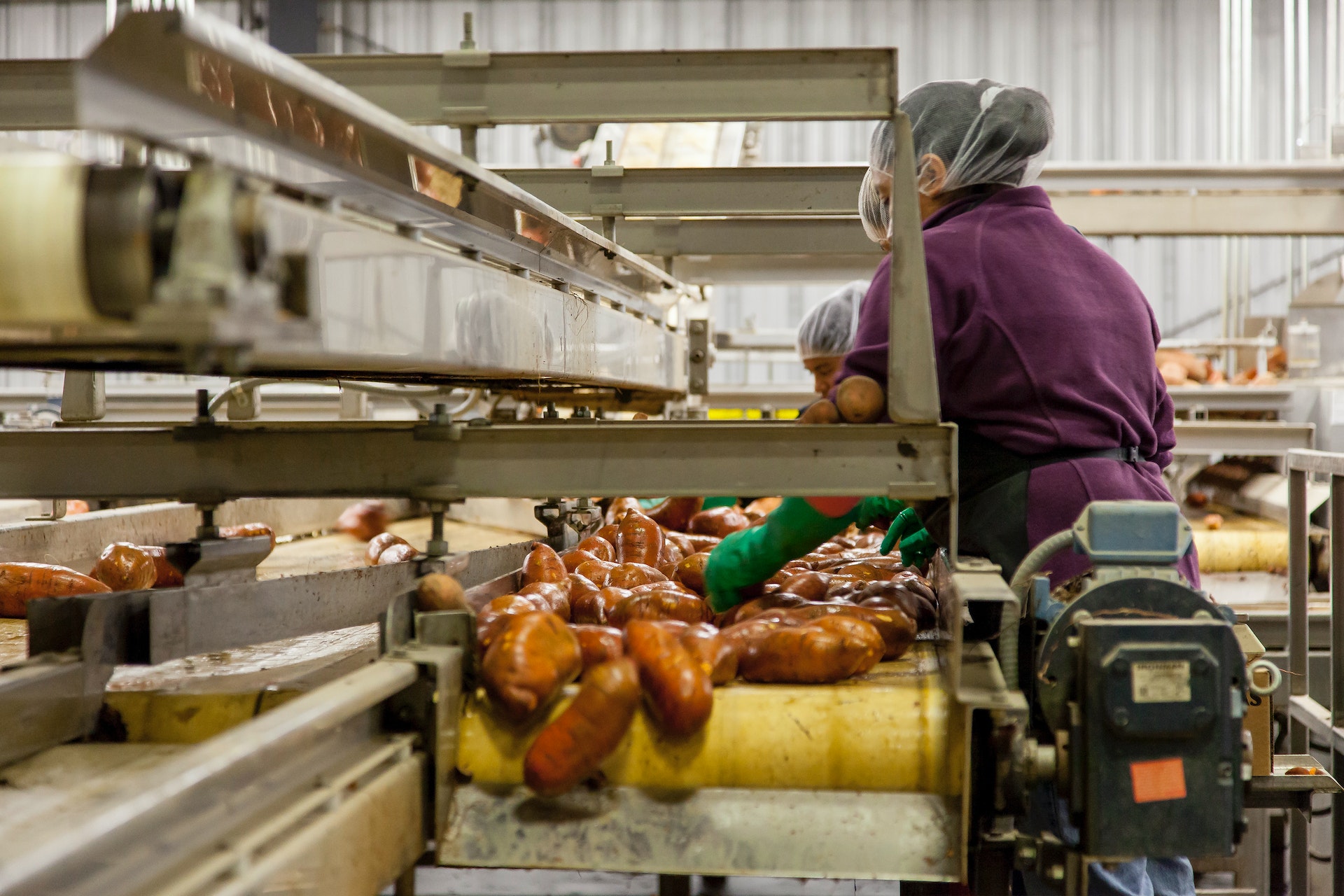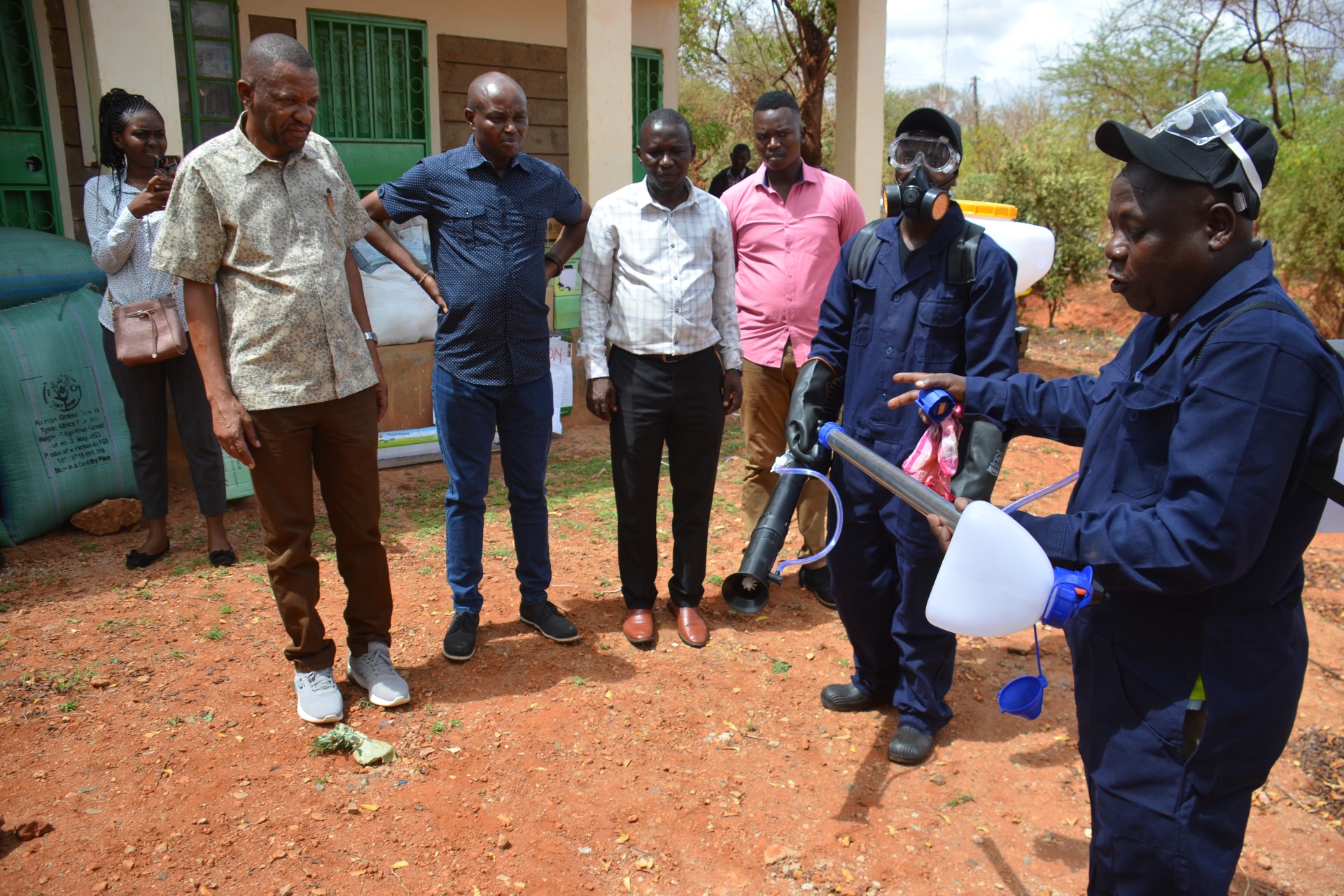Lack of manpower has been blamed for the delayed operations of the newly constructed 117 million Getong’anya Sweet Potato Factory, Migori county.
The European Union funded project that was officially opened in March 2022 by the former Cabinet Secretary Eugene Wamalwa and former Migori Governor Okoth Obado has not yet commenced operations.
Migori County Executive Committee Member (CECMs) for Public Service and Devolution Caleb Opondo noted that the biggest challenge was staffing which has seen the mega project gates remain closed.
However, Opondo acknowledged that the county will soon operationalize the factory that is located in Kuria West Sub County.
“We have not yet employed a factory manager and other technical staff to enable the factory to start the official operations. The new county administration is equally committed to addressing the challenge so that our farmers can benefit from the multi million project,” he noted.
The county Chief Officer of Agriculture John Midwa decried that middle men were exploiting sweet potato farmers because of the stalled factory.
Midwa said that once the county allocates the Sh11 million in the forthcoming supplementary budget they will embark on hiring a workforce to operationalise the factory.
He also said that the county will continue to implement projects initiated by the previous regime for the benefit of the residents.
“We want to increase food security in our county and the only way to do so is to ensure factories like Getong’anya that is capable of producing 100 tonnes of sweet potatoes daily is fully operational,” said Midwa.
Getong’ anya, a sole sweet potato factory in Nyanza Region will be able to serve farmers in the region through value chain product addition.
Homa Bay County is the dominant producer of the much sought after Orange-fleshed sweet-potato (OFSP) with 24,268 hectares under cultivation followed by Migori with 11,312 hectares.
Migori has also set aside 400 acres at the lower Kuja irrigation Scheme, Nyatike Sub County for the production of certified and improved sweet potato vines.
On the other hand, Kuria sub counties are the biggest producers of sweet potatoes, with close to 0.3 million tonnes from an estimated 6, 500 farmers.
According to Midwa, the number may have reduced because of exploitive middlemen and lack of operations in the factory.
Kuria West Sweet Potato Sacco Manager Samson Wankuru said that he was saddened to see a noble farmer project that was launched in late 2018 still non-operational, yet farmers abandoned tobacco farming hoping for sweet returns from the enterprise.
He added that sweet potato farmers have been forced to stare at locked gates of Getong’anya factory plant, while exploitive middlemen keep buying their produce far way below the market prices.
Wankuru pointed out that as far as 2016, sweet potato farmers have been shifting from tobacco farming and organising themselves in groups to buy quality vines in the name of getting good returns from the factory.
The Sacco has so far registered 750 farmers with the majority being former tobacco farmers from Kuria.
Wankuru emphasised that the lack of operation activities in the factory has slowed down sweet potato farming because of poor returns occasioned by exploitive middlemen.
Sospeter Rioba, a farmer from Getong’anya whose five acres are under sweet potatoes said that middlemen pay as low as Sh1,800 for two sacks. To make matters even worse, they insist on taking only medium size tubers leaving oversized and small ones to waste.
He explained that the only way to address the frustrations of farmers is to ensure that the Getony’anga factory opens its doors to address the plight of sweet potato growers.
The 2022-2023 Migori Supplementary budget had allocated Sh11 million to kick start the factory and according to the area MCA Clackson Mwita the operations may resume in March 2023.
“We need the county to jumpstart factory operations in line with the country’s Big Four Agenda food security and manufacturing components. The government is striving towards agricultural value addition in potential areas to create employment and enhance food security, and the county government’s cooperation will be a key contributor towards this end,” added Mwita.

